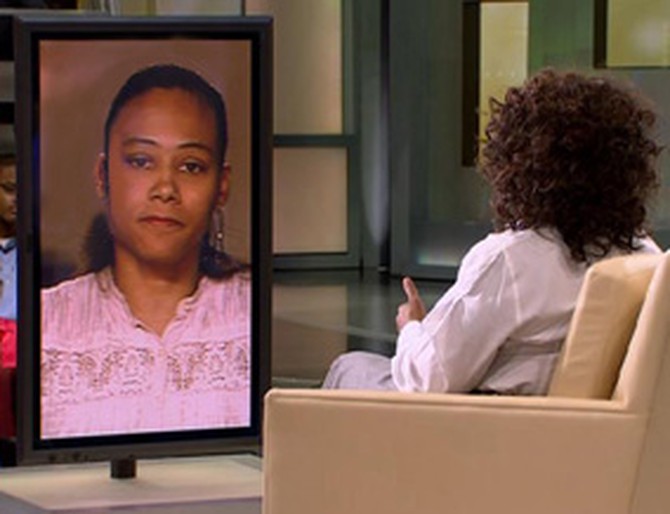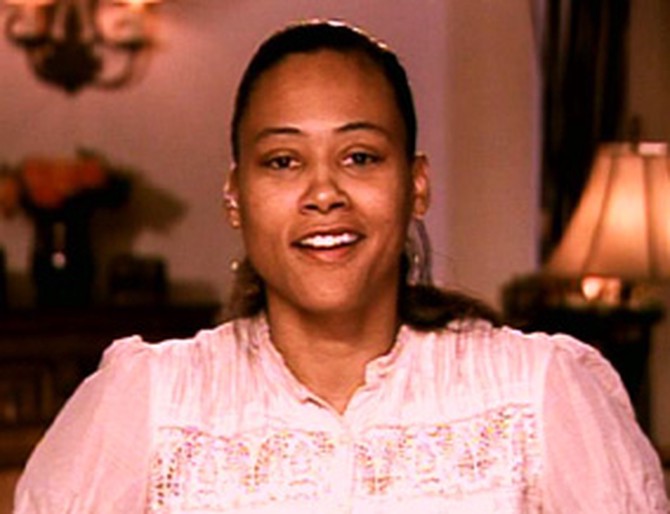Stripped of Her Medals

Marion Jones was a hero to millions. Considered to be the fastest woman alive and perhaps the finest female athlete in the world, Marion gained fans around the world when she competed in the 2000 Sydney Olympic Games. She ran her way into history by winning three gold medals and two bronze medals in track and field. "Seemingly blessed with superhuman talent, Marion Jones looked like she had it all," Oprah says. "Poise. Beauty. And a smile that could light up the stands."
With suspicion mounting that she used performance-enhancing drugs, Marion denied the accusations.
With suspicion mounting that she used performance-enhancing drugs, Marion denied the accusations.

Marion's decision to deny having used performance-enhancing drugs would later come back to haunt her. On October 5, 2007, the truth was finally told. Marion made a statement informing the public that she had been dishonest. Marion was stripped of her medals and sentenced to six months in jail for lying under oath about her steroid use and involvement in a check fraud scam.
In her first interview since her sentencing, Marion says she accepts the consequences of her actions. "I think that I absolutely should have to accept responsibility for breaking the law," she says.
Marion is disappointed that she received jail time instead of probation but says she knows her punishment isn't in her control. "I put myself in a position to have somebody else determine my immediate future," she says. "I made that decision. I have to live with it. My family has to live with it. And, you know, with the grace of God we'll get through it and come out even better at the other end."
In her first interview since her sentencing, Marion says she accepts the consequences of her actions. "I think that I absolutely should have to accept responsibility for breaking the law," she says.
Marion is disappointed that she received jail time instead of probation but says she knows her punishment isn't in her control. "I put myself in a position to have somebody else determine my immediate future," she says. "I made that decision. I have to live with it. My family has to live with it. And, you know, with the grace of God we'll get through it and come out even better at the other end."

Marion says she wants the world to know that she has made a mistake and that everyone makes mistakes. "I have no regrets for doing what I did on October the 5th and pleading guilty and admitting to the world that I lied, that I've made mistakes," she says.
Rather than dwelling in her past, Marion wants to look forward. "I truly think that a person's character is determined by their admission of their mistakes and then beyond that, what do I do about it? You know, how can I change the lives of people? How can I use my story to change the lives of a young person?"
Rather than dwelling in her past, Marion wants to look forward. "I truly think that a person's character is determined by their admission of their mistakes and then beyond that, what do I do about it? You know, how can I change the lives of people? How can I use my story to change the lives of a young person?"

Marion says she is grateful for the people who have supported her throughout her ordeal. "The prayers have really allowed me to get through it and be strong," she says.
Although being stripped of her medals was painful, Marion says the pain she has put her family and friends through hurts far more. "I've returned the medals, the performances have been taken away, but they fail in comparison to seeing my husband cry," she says. "They fail in comparison to seeing my mother have to stand there in the courtroom and bawl. You know, those things to me are what mean the most."
With a 4-year-old at home, Marion and her husband are faced with the daunting task of finding the right words to explain the situation to their young son. "I have not told him yet, " Marion says. "My husband and I have spoken about how we're going to go about doing that. I mean, as you can imagine, it's a very sensitive topic, and we're not dealing with a 15-year-old here who perceives things a different way. We're talking about a 4-year-old who was upset this morning that I couldn't drop him off at school, you know? It's going to be challenging."
Although being stripped of her medals was painful, Marion says the pain she has put her family and friends through hurts far more. "I've returned the medals, the performances have been taken away, but they fail in comparison to seeing my husband cry," she says. "They fail in comparison to seeing my mother have to stand there in the courtroom and bawl. You know, those things to me are what mean the most."
With a 4-year-old at home, Marion and her husband are faced with the daunting task of finding the right words to explain the situation to their young son. "I have not told him yet, " Marion says. "My husband and I have spoken about how we're going to go about doing that. I mean, as you can imagine, it's a very sensitive topic, and we're not dealing with a 15-year-old here who perceives things a different way. We're talking about a 4-year-old who was upset this morning that I couldn't drop him off at school, you know? It's going to be challenging."

Time after time as she denied using performance-enhancing drugs, Marion says she was fully aware of her actions. "I made the choice to at that time protect myself, to protect my family, and I have paid the consequences dearly," she says.
Marion says she has always been a believer in God but that she strayed. "Everybody strays at some point in their life, and I strayed and I made mistakes and I am no different than anybody else except for the fact that you see me on the front page of the paper," she says.
Marion says she has always been a believer in God but that she strayed. "Everybody strays at some point in their life, and I strayed and I made mistakes and I am no different than anybody else except for the fact that you see me on the front page of the paper," she says.
Published 03/14/2008

